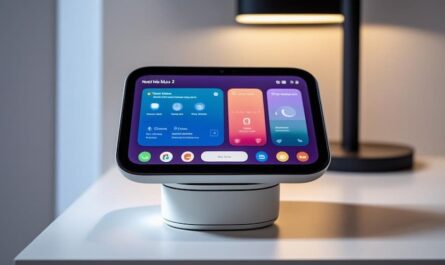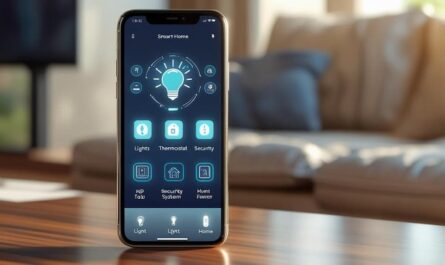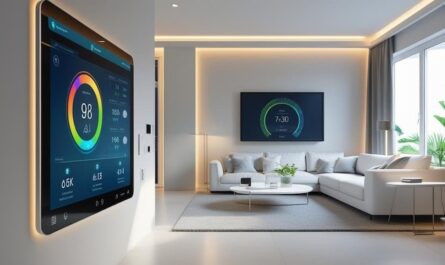To choose the best smart home security system can feel quite overwhelming, especially with lots of options available today. But you can make a better informed decision by understanding what these systems offer, how they fit your lifestyle, and what makes one stand out over another. When it comes to protecting your home, the right home security system is more than just an alarm, it’s a comprehensive solution that keeps you connected and in control, thereby providing peace of mind.
What makes a smart home security system the best?
Home security system is designed to protect your property and loved ones, but a smart home security system takes it a step further by integrating technology that you can control remotely. You want a system that offers reliable monitoring, easy installation, and features that suit your specific needs. Important features like remote monitoring, smart locks, motion sensors, and security cameras are common, but the best systems also offer automation sequences and integration with other smart devices, thereby improving your home’s safety while increasing its intelligence simultaneously.
Top smart home security systems of 2025
There are several smart home security systems that stand out in 2025, each with its own strengths. You should consider your priorities, whether you want professional installation, budget-friendly options, or advanced home automation.
SimpliSafe is considered the top home security system overall. It offers innovative intruder intervention features with indoor and outdoor cameras that actively deter burglars. You can set it up yourself in minutes, and it doesn’t require a contract, which is important if you want flexibility. SimpliSafe also offers professional monitoring plans that are flexible and affordable, with packages starting at around $250. Its equipment is sleek and modern, and the system supports smart home automation, so you can control your security alongside other smart devices in your home.
If you favor expert installation and monitoring, ADT continues to be a dependable option. Recognized for its dependability, ADT has been a reputable figure in home protection for many years. However, ADT usually requires a contract and professional monitoring, which might not suit everyone’s preferences or budget.
For more information how you can control your smart home, check out this post on: Is there an app to control smart home devices? guide.
Vivint is the pick for smart home enthusiasts who want advanced automation features integrated with their security system. It offers professional installation and monitoring, with a focus on creating a connected smart home environment, including things like smart locks, lighting, and thermostats that work seamlessly with the security system.
If affordability and ease of setup are your main concerns, Cove is worth considering. It’s highly rated by customers for its budget-friendly equipment and quick DIY installation. Cove also offers 24/7 professional monitoring with strong customer service, which means you get good protection without breaking the bank. However, it has limited smart home compatibility compared to others like Vivint or SimpliSafe.
Ring Alarm is another popular DIY system, especially if you prioritize security cameras and video doorbells. It’s easy to set up and offers good value, but you should be aware that some users report frustrations with customer service and subscription fees for accessing certain features.
Features to look for in your home security system
When choosing your home security system, you should focus on features that matter most to you. Being able to monitor your home remotely through your smartphone is very important. Smart locks provide keyless entry and can alert you if doors are left unlocked, which is handy for busy households. Alarm systems and motion sensors are the backbone of security, triggering alerts when something unusual happens.
Security cameras with night vision and two-way audio let you see and communicate with visitors or intruders in real time. Door and window sensors notify you immediately if an entry point is opened unexpectedly. Integration capabilities are important if you want your system to work with voice assistants like Alexa or Google Assistant, or if you want to automate routines such as turning on lights when you arrive home.
Important things to keep in mind
Smart home security systems offer many advantages: they provide real-time alerts, remote control, and automation that can deter crime and make your home more convenient. On the other hand, some systems require monthly fees, contracts, or professional installation, which might not fit every budget or preference. You should weigh these factors carefully. For instance, SimpliSafe offers no-contract options, while ADT requires contracts but offers professional installation and monitoring. Cove offers affordable DIY options but with fewer smart home integrations.
How much should you expect to pay?
Prices for home security systems can differ greatly. Equipment packages generally range from $199 to $599, with professional installation adding up to $299 in some cases. Monitoring fees typically run between $25 and $50 per month, but some systems like Abode or Cove offer lower fees or self-monitoring options. You should consider both upfront and ongoing costs when selecting your system.
Market trends and future outlook
The smart home security market is growing very fast, with a projected increase from about $40 billion in 2025 to over $145 billion by 2034. This growth is driven by rising concerns over home safety and advancements in AI technology. AI enhances security systems by recognizing faces, detecting motion, and analyzing resident activity patterns, which can adjust lighting, locks, and surveillance automatically. This means the best home security system today is likely to become even smarter and more adaptive over time.
Our thoughts on choosing your home security system
The best home security system actually depends on your unique needs, budget, and how much you want to integrate smart technology into your daily life. You can find systems that offer professional monitoring and installation, or opt for DIY setups that give you more control and flexibility. For example, systems like SimpliSafe balance affordability, ease of use, and smart features, while ADT and Vivint cater to those wanting more comprehensive professional services and automation.
Remember, home security system is central to your decision because it reflects the core purpose: protecting your home. By considering the features, costs, customer reviews, and your personal preferences, you can select a home security system that keeps your home safe while fitting your lifestyle and budget.
This way, you get a smart home security system that not only guards your property but also makes your life easier and more connected.



